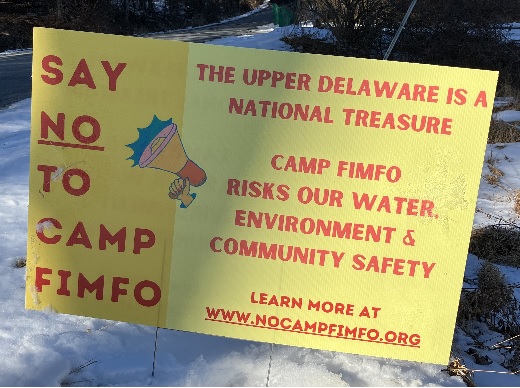Breathe carefully: air emissions of benzene may cause birth defects
October 26, 2010How Many Water Supplies Have Been Impacted by Gas Drilling?
November 16, 2010At the public comment portion of the UDC meeting on February 3, Barbara Arrindell of Damascus Citizens for Sustainability (DCS) asked Delaware River Basin Commission (DRBC) representative Clarke Rupert whether the agency considers public comments on proposed rulemakings to be “just an annoyance,” or whether it actually takes them into account in its final decisions. She cited the example of the Stone Energy water withdrawal, in which the preponderance of public comment was opposed, but the agency permitted the withdrawal anyway. Rupert, while quick to say that all the comments are reviewed, said he can’t speak for the commission as to whether any particular suggestions will be reflected in the commission’s final decisions.
Can government agencies create regulations by just posting a notice, receiving comments and then ignoring them? In one recent case, a court ruled “no.” A federal district court vacated the Department of Energy’s (DOE) designation of National Interest Electric Transmission Corridors (see page 3), and one of the two grounds cited was the agency’s failure to develop its electric congestion study “in consultation with” the states. The DOE issued a notice and collected comments from the public—including the states—but completed most of the study before there was an opportunity for input, and subsequently created the final NIETC designations without showing that it had taken that input into account. That’s not consultation, ruled the court, and threw out the designations.
To be sure, the DRBC case is not a direct parallel. “Consultation” requires a stricter standard of action than notice-and-comment procedure, and, unlike the DOE case, there is no specific statute requiring that the DRBC “consult,” in this strict sense, with anybody regarding its rulemaking on natural gas drilling. However, there is another recourse, which we find in the recent suit of the DCS challenging the DRBC’s decision to grandfather exploratory natural gas wells in Wayne County. It employs an essential concept in administrative law called the “arbitrary and capricious” test.
In explaining what this standard means, the court in Citizens to Preserve Overton Park, Inc. v. Volpe, 401 U.S. 402 (1971), wrote, “the court must consider whether the decision was based on a consideration of the relevant factors and whether there has been a clear error of judgment.” DCS is arguing that the DRBC’s decision to grandfather exploratory wells did not take into account “relevant factors” including evidence of environmental and other damage that can be caused even by vertical drilling.
Regardless of how the DCS suit fares, it seems to us that the concept of “arbitrary and capricious” is important to keep in mind with regard to public comments on the DRBC’s proposed regulations on gas drilling. Among other things, it underlines the importance of having an abundance of well-documented, well-reasoned comments. That’s because, according to William F. Funk and Robert Seamans’s text “Administrative Law,” only those factors that are on the administrative record at the time the agency makes the rule or regulation in question can be considered later by the court in deciding whether the “relevant factors” have been taken into account—and comments go on the administrative record. If an agency issues regulations that do not take them into account, it is risking an “arbitrary and capricious” court challenge.
In the case of natural gas drilling in particular, there is an additional factor teeing up a potential “arbitrary and capricious” challenge to any regulations that the DRBC might issue in the near future. The fact that two cumulative impact studies have been proposed—one under the aegis of the DRBC itself, the other by the EPA—and that neither of them has been completed, or will be completed for a couple of years, opens the DRBC’s proposed regulations to a court challenge. If issuing regulations for an activity without waiting for scientific evidence of what damage it can do doesn’t count as “arbitrary and capricious,” we’re not sure what would. We would therefore encourage those who think that the DRBC is acting prematurely by issuing any regulations at all this year to enter comments to that effect into the record—remembering to include facts and documentation.
None of this should be taken to impugn either the motives or the efficiency of DRBC personnel. But the DRBC as a whole is under immense political and corporate pressure to act in a way and on a schedule that does not and cannot take all the key “relevant factors” into account. Perhaps the potential for an “arbitrary and capricious” challenge—combined with the recent court ruling on NIETCs, as a reminder of the fact that the courts can and do sometimes upend rash regulatory decisions—might make the DRBC stop and think about whether acting without scientific evidence is actually going to get it anywhere.



